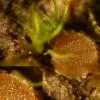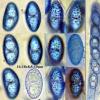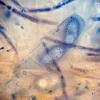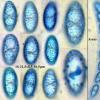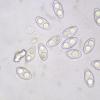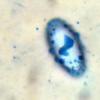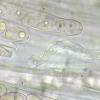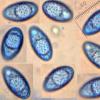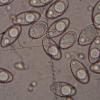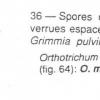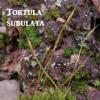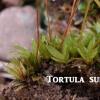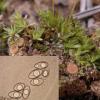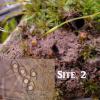
29-11-2024 21:47
Yanick BOULANGERBonjourJ'avais un deuxième échantillon moins mat

27-02-2026 17:51
 Michel Hairaud
Michel Hairaud
Bonjour, Quelqu'un peut il me donner un conseil p

27-02-2026 16:17
 Mathias Hass
Mathias Hass
Hi, Found this on Betula, rather fresh fallen twi

27-02-2026 12:56
Åge OterhalsFound on fallen cones of Pinus sylvestris in midle

27-02-2026 11:21
 Yannick Mourgues
Yannick Mourgues
Hi to all. Here is a specie that can may be relat

26-02-2026 15:00
Me mandan el material seco de Galicia, recolectada

24-02-2026 11:01
Gernot FriebesHi,found on a branch of Tilia, with conidia measur

23-02-2026 11:22
Thomas Læssøehttps://svampe.databasen.org/observations/10584971
 Hi
Hion yesterdays tour I have found a special bryoparasitic fungus associated with 2 mosses, I think Bryum sp and Dicranella sp. Macroscopically similarities with Octospora phagospora, but more with a orange shade and tiny hyaline hairs (see photo). Microscopically it seems to be similar to Octospora similis, but with smaller spores (O. similis > 10µm), or to Octospora orthotricha, which has obviously larger spores. I also thought about a Neottiella, but the size of the spores does not fit to any specimen I know about...so what is it?
Here are the details:
Fruitbody 0,5-1,2 mm, pale orange-yellow, with small, hyalin hairs. Spores 16-18x8,5-10µm, with 2 vakuoles in nearly each spore, only about 5-10% with only one vakuole, ellipsoid to ellispoid-fusiform, sometimes asymmetrical, with a distinct, warty ornamentation, warts variabel, mostly single, but sometimes connected with small ridges, NOT forming a net (see photos). Asci 130-160x11-13µm, with 8 spores, uniseriat, short stalked. Paraphyses 3-4µm, apical up to 4,5 (5)µm, septate, filled with pale orange pigments. Hairs 70-90x10µm, hyalin, septate.
Associated with mosses on a wet brookside. Only 2 fruitbodies (the second one isn't checked yet).
regards and thanks for help,
kazuya

If hair is present, it will be quite a Neottiela. Also, at the end pointed spores would fit well to the genre. Except for the size of the spores, it fits so good. The ornament and the oil droplets say Neottiela vivida var. microspora Kazuya var nov. ;-)
Wenn Haare vorhanden sind, wird es schon eine Neottiela sein. Auch die, am ende spitzen Sporen würden gut zu der Gattung passen. Bis auf die Größe der Sporen passt es ja gut. Das Ornament und die Öltropfen sagen Neottiela vivida var. microspora Kazuya var. nov.
Peter

thank you for your opinion. That is exactly my problem :D it looks like Neottiella vivida, but with this spore size? Perhaps someone else knows a species with this features, it is still mysterious...
Jedenfalls hat der Pilz nicht "Neottiella vivida var. microspora" gerufen ^^
lg kazuya

Gruß Peter

Do you have micropictures of the marginal hairs? Are they pointed?
If they are not pointed, then Octospora meslinii can be an option.
Cheers,
Raúl

gruß kaz

they look quite like the paraphyses and are cylindric (if they are not paraphyes), I didn't see any pointed end cells.

So we have different moss and different oil pattern... an adaptation to a new host? Who knows... maybe there is another that fits with your characters.
Raúl

A further question is now, if the presence of one or two oil drops is significant for the determination of Octospora meslinii or if this feature is inside its variability. Or not? What would you say?
regards, kaz
Il me semble que Octospora meslinii est liée à Grimmia pulvinata.
Pourquoi ne pas envisager Octospora orthotrica (spores (15) 17-19(20) x 10-12.
Un peu larges c'est vrai...
Gilbert

but O. orthotricha also has only one oil drop, which has a central position and the spores are 10-12,5µm broad, which does not really fit to my finding. My experience shows methat O. orthotricha grows with Orthotricha on barks and stones during winter half year. It does not also fit to the habitat of my "O. cf meslinii".
I have a third fruitbody in the plastic box. It will be on the way to D. Benkert, perhaps he can tell us what it is ;)
regards, kaz

Well, I always thought that my collections were Octospora meslinii because of what appears in the key of Caillet & Moyne in "Clé du determination du genre Octospora et des genres voisins". There they call it Octospora melina var. meslinii, but in my opinion Octospora melina has shorter spores with a very different shape so I prefer to call it Octospora meslinii. The data figured in Caillet & Moyne´s key fit good with my collection though no there is no info about spore guttulation.
I will try to answer your question, Kazama, about oil drops in spores. I think it is an important character that sometimes can help to define a species. But it is also possible that in some species it is somewhat variable and then not so important. It is as the host, some species are linked to a specific host, but other species have a wider range of hosts. In the species that I found here in my area, which I call Octospora meslinii (always on Tortula subulata), I have three different sites where I found it. In site 1, spores have one big oil drop or one big plus a little one (never so big as the main one). And in site 2 and 3 (about 80km far away from site 1) mostly all spores have only one oil drop, rarely two. The three collections share the moss, colour (poorly orange), abundant anchoring hyphae, ornament pattern and spore measures (site 3 has a slightly different morphology (maybe because of matureless). So as you see I have a variation in my finds, but never seen spores with two nearly equal oils drops as seen in your spores. If I compare it to your find, spore guttulation pattern is very different, also the host, and mine reach a higher width up to 10-12 µm, so who knows if it is the same species. Maybe only molecular studies can find a difference? I don´t know.
By the way I´m really interested in knowing Benkert´s opinion about your collection.
But I never seen Le Gal´s description or that of Svreck & Kubicka, so maybe I am wrong and mine isn´t Octospora meslinii?
Somebody has the original description of Madame Le Gal as Humaria meslinii in "Un Humaria nouveau et un Lamprospora nord-américain récoltés en France" in volume 4 of "Revue de Mycologie", pag. 133-139, specially pag. 133.
And this article of Svrcek & Kubicka?: "Deuxième contribution à la connaissance des Discomycètes operculés de la region de l´étang "Dvoriste" en Sud-Bohême" in volume 17 of "Ceská Mykologie", pag. 61-70, and specially pag. 67 where they transferHumaria meslinii Le Gal to Octospora meslinii (Le Gal) Svrcek & Kubicka.
Thanks in advance,
Raúl

regards,kaz

BENKERT has determined the specimen as Octospora fissidentis (assoziated with Fissidens bryoides).
regards, kaz

So there was Fisidens bryiodes on your sample?
Mystery solved by Benkert. Thanks for sharing his opinion.
I don´t have Persoonia 18 (3) p. 383 where he published the species with Brouwer, so I even not thought in that one.
Raúl

regards, kaz
